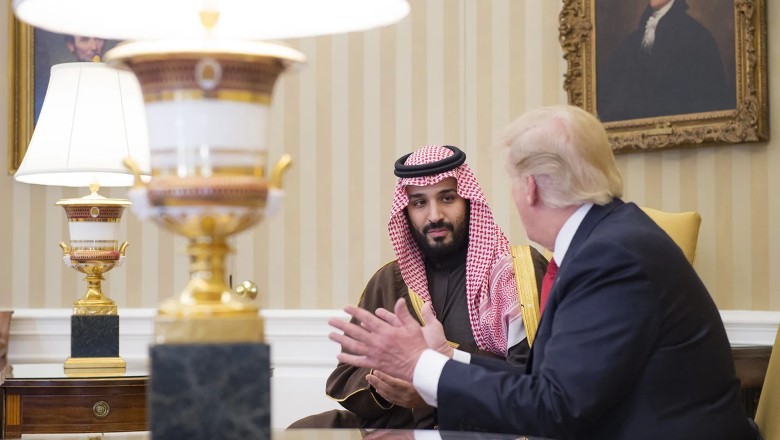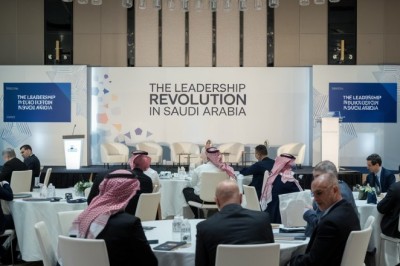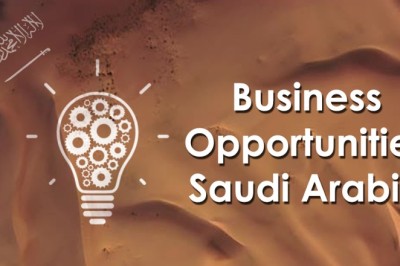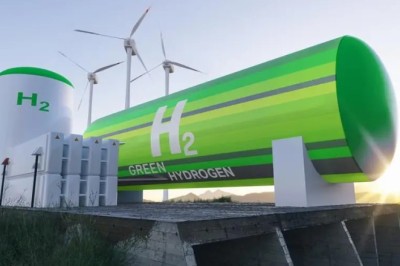
The re-election of Donald Trump signals a continuation of U.S.-Saudi relations that have been traditionally strong but multifaceted, marked by mutual interests in security, oil, and trade. With Trump’s renewed mandate, opportunities abound for Saudi Arabia’s ambitious economic plans under Vision 2030. At the same time, potential challenges, particularly in areas of economic diplomacy and security, are in focus.
Impact on the Oil Market: Strategic Leverage for Saudi Arabia
Given Trump’s pro-oil stance and his administration’s history of favoring a balanced global oil market, Saudi Arabia might anticipate favorable conditions in its primary revenue-generating sector. Under his first term, Trump often worked to stabilize oil prices, a strategy that aligned with Saudi Arabia's interests, especially amid fluctuations brought about by the pandemic and geopolitical tensions. With global oil demand shifting, Saudi Arabia’s role in maintaining energy security will remain crucial.
For investors, stable oil markets promise continuity, while Trump’s policies may also further bolster Saudi Arabia’s positioning in the market, especially through:
- Reduced restrictions on U.S. oil exports: This approach could lead to a more competitive market, requiring Saudi Arabia to strategize closely on production cuts with OPEC+.
- Potential infrastructure deals: Increased collaboration in refining and pipeline projects could encourage American oil companies to invest in the kingdom.
Defense and Security Contracts: Expanding Business for U.S. Firms
Saudi Arabia has been a significant client for U.S. defense exports, with the Trump administration facilitating major arms deals. Trump’s re-election may maintain, if not increase, these contracts, fostering stronger security ties. Enhanced arms contracts translate into lucrative opportunities for U.S.-based defense companies, who might also assist in building local military capabilities in Saudi Arabia.
Saudi firms working in defense, aerospace, and logistics may find direct partnerships with American companies more accessible. Furthermore, the increased business could support Saudi’s defense strategy, potentially creating joint ventures, R&D partnerships, and high-skill job opportunities for locals in line with Vision 2030’s goals.
Opportunities in Infrastructure and Real Estate Development
One of the lesser-explored impacts of Trump’s re-election is his potential to drive American investments into Saudi infrastructure. Given Trump’s business background, he is likely to favor policies that allow American companies to engage in infrastructure projects overseas. Saudi Arabia, with major developments such as the NEOM project and Red Sea tourism initiatives, could benefit from such a push.
These massive ventures require expertise in construction, real estate, engineering, and green tech—all sectors where American companies could play a significant role. Saudi Arabia’s economic diversification means there are also incentives for U.S. businesses in:
- Residential and Commercial Real Estate: The demand for modern infrastructure aligns with the kingdom’s need for urban expansion and housing, offering U.S. real estate firms vast opportunities.
- Technological Innovation in Smart Cities: U.S. tech companies specializing in AI, IoT, and sustainable city solutions could find strategic entry points into NEOM and similar projects.
Renewed Prospects in the Tech and Startup Ecosystem
In recent years, Saudi Arabia has shown increasing interest in fostering a vibrant startup ecosystem and becoming a Middle Eastern tech hub. With the extension of Trump’s term, U.S.-Saudi relations in technology might deepen. This period could usher in expanded U.S. investments in the Saudi tech sector, with collaborations aimed at developing the next generation of digital infrastructure. Potential areas of interest include:
- Digital Payment Systems and FinTech: With Saudi Arabia pushing digital banking and e-commerce, American fintech firms might be encouraged to partner with local banks and startups.
- HealthTech and Biotechnology: Given the lessons from the COVID-19 pandemic, Trump’s administration may support cross-border health collaborations, providing U.S. health tech firms a pathway into Saudi markets.
By bolstering Saudi Arabia’s tech ecosystem, such partnerships could contribute to job creation, knowledge transfer, and the development of a Saudi workforce skilled in tech and innovation.
Social and Cultural Ventures: A New Era of Tourism and Entertainment
Another key opportunity lies within Saudi Arabia’s cultural and entertainment industry. With Trump in office, Saudi Arabia may leverage its new entertainment ventures to attract American companies and cultural exchanges, especially with projects like the Riyadh Season festival and Al-Ula's cultural restoration. The kingdom's cultural reforms pave the way for high-profile partnerships in film, music, and tourism infrastructure, appealing to American brands and investors.
For investors, the rising tourism landscape opens doors for boutique hotels, entertainment ventures, and world-class hospitality. With high-profile figures like Ronaldo and Messi promoting Saudi tourism, new opportunities could expand through American entertainment giants partnering with the Saudi tourism board, thereby expanding the global cultural footprint of the kingdom.
Future Considerations for Investors and Entrepreneurs
- Investment Incentives: U.S. investors could benefit from incentives provided under Vision 2030, such as tax breaks and subsidies, especially in underdeveloped sectors like renewable energy and digital infrastructure.
- Risk Management: While Trump’s stance could offer business-friendly policies, potential risks include fluctuating oil prices and possible geopolitical tensions. Investors will need to stay attuned to these factors.
- Sustainability in Focus: As Vision 2030 emphasizes sustainability, American firms that align with green policies may enjoy long-term contracts and steady market growth. This is particularly true for companies specializing in renewable energy and environmental technology.
Conclusion: Charting a New Era of Economic Collaboration
Trump’s second term brings both opportunities and challenges for Saudi Arabia’s ambitious economic plans, particularly as Vision 2030 reaches critical milestones. For Saudi Arabia, this could mean deeper integration into the global economy, with the U.S. as a strategic partner across diverse sectors.
As Saudi Arabia opens its doors to foreign investors, American firms have a rare window to tap into one of the world’s most ambitious economic transformations. Whether in defense, technology, or cultural ventures, Trump’s re-election could shape a path for both nations to build a mutually beneficial and resilient economic future.












Comments
0 comment